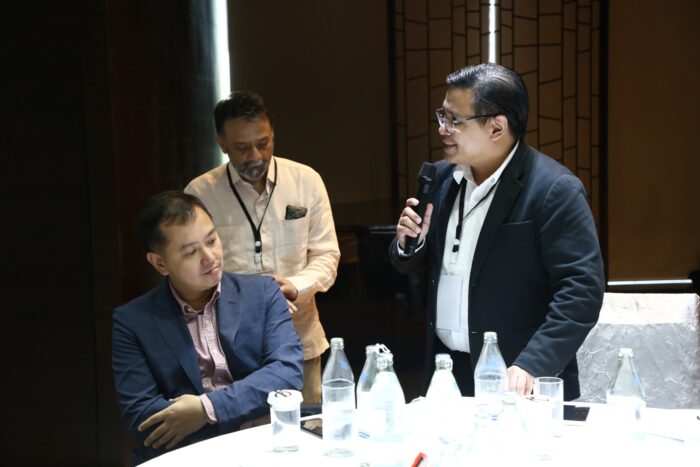
It has been said that the rights that we enjoy offline should also be protected online. Freedom of expression, access to information, privacy, and association and assembly are fundamental rights that should be respected and promoted whether in the physical world or in the digital realm.
Recognizing the importance of digital rights, a delegation from the Council of Asian Liberals and Democrats (CALD) attended the Internet Freedom in Southeast Asia (IFSEA) Regional Conference co-organized by the Asia Centre and International Center for Not-for-Profit Law (ICNL) on 9-10 May 2023 in Bangkok, Thailand. Around 30 parliamentarians and representatives from UN agencies, civil society organizations (CSOs) and media associations across Southeast Asia participated in the event.
The conference is part of the wider IFSEA project undertaken by the Asia Centre with the support of ICNL to assess the situation of internet freedoms in the region and improve digital rights through advocacy work, public engagement, UN human rights mechanism engagement and network-building. More specifically, the event was intended to: assess the situation of internet freedoms in the region; identify key regional trends on internet freedoms; and find new solutions to improve freedoms of people in accessing and using the internet.
To frame the conference and identify key trends of internet freedoms in the region, Asia Centre set the scene by outlining the overarching themes across its four reports on internet freedoms in Myanmar, Timor-Leste, Cambodia and Malaysia published between 2021-2023. Common themes across the reports were: the inclusion of “internet” as a human right; compliance with international standards of internet freedoms; measures taken by state authorities that violate and restrict internet freedoms; and the joint role of parliamentarians and CSOs in drafting rights-based legislation and establishing oversight mechanisms.
The CALD delegation, composed of Philippine Member of House of Representatives Adrian Michael Amatong, Malaysian Senator Dominic Lau Hoe Chai and CALD Executive Director Celito Arlegue took part in Panel 4, which tackled parliamentarian and CSOs Partnerships for Internet Freedoms. They were joined by Madius bin Tangau, a parliamentarian from Malaysia, and Febrina Galuh Permanasari of Alliansi Jurnalis Independen Indonesia.
Arlegue, who moderated the panel, introduced the topic by asking the question: “Can parliamentarians and CSOs work together if there are prevailing trust issues between them – where parliamentarians are often seen as part of the problem rather than as part of the solution?” In his presentation, Senator Lau recognized the value of civil society in the work of parliamentarians. “We do not have adept knowledge in every field… so civil society can be a valuable resource since they are closer to the people on the ground”, he said. Congressman Amatong, in his intervention, emphasized the realities that district representatives have to work with, and how they impact on their priorities. These realities, in his opinion, should also be taken into account by CSOs in their engagement.
In the group discussions that followed after, one of the recommendations was for parliamentarians to openly collaborate with CSOs in drafting relevant laws protecting internet freedoms. Cross-ministerial initiatives in the drafting process could result in holistic and thorough legislation that strengthens the legal system advancing freedoms on the net.
While much more needs to be done so parliamentarians and CSOs can work together on the issue of internet freedoms in Asia, the conference provided a useful starting point for potentially useful future collaborations.
To read more about the IFSEA Regional Conference, please see this link to the Asia Centre article.
|
Categorised in: News Article
This post was written by CALD
 Unit 409, 4/F La Fuerza Plaza 2, 2241 Don Chino Roces Ave. corner Sabio St., 1231 Makati City, Philippines
Unit 409, 4/F La Fuerza Plaza 2, 2241 Don Chino Roces Ave. corner Sabio St., 1231 Makati City, Philippines
 +632 8819 60 71
+632 8819 60 71
 info@cald.org
info@cald.org